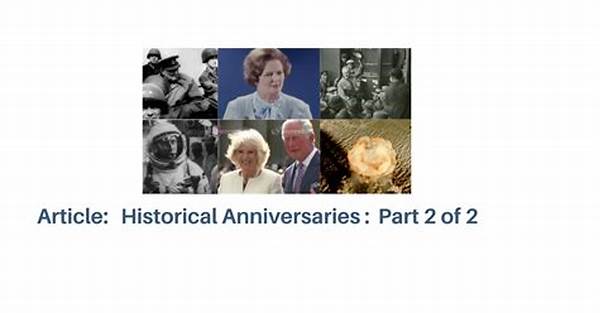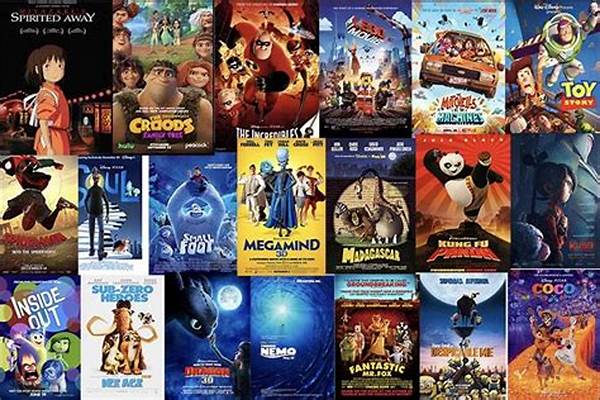Every year, historical anniversaries roll around, giving us the perfect excuse to pause, reflect, and celebrate the past. But here’s the kicker: Are we really capturing the whole picture? Inclusive approaches to historical anniversaries invite us to widen our lens, ensuring that every voice, memory, and experience has a seat at the table. Imagine a world where everyone, regardless of background, feels a sense of belonging during these commemorations. Not only does this enrich our understanding of history, but it also strengthens our shared future. So, why settle for the old way when there’s a more inclusive path waiting to be carved?
Read Now : Authenticity In Editorial Cartooning History
Embracing Diversity in Historical Narratives
Think about it: History is like a gigantic tapestry, made up of countless threads woven together. But for too long, some threads have been overlooked, unraveling the story we tell. An inclusive approach to historical anniversaries is about diving deep, uncovering those hidden perspectives, and bringing them into the light. Imagine celebrating a historical event and hearing different voices recount their experiences with it. Amazing, right? It’s like giving your Spotify playlist a refreshing update—it just hits different!
What about those untold stories yearning for recognition? Inclusive approaches can bridge that gap between past and present, trading monolithic narratives for a vibrant mosaic of experiences. With every anniversary celebrated inclusively, we pave the way for meaningful dialogue and genuine connection. Inclusive approaches to historical anniversaries aren’t just nice-to-have—they’re game changers. By intentionally amplifying diverse perspectives, we create commemorations that resonate with authenticity and depth.
So, as we commemorate moments from our past, let’s commit to reflecting on how inclusive we’re being. We owe it to every thread in the tapestry of history, and to ourselves as well. Only by embracing a full spectrum of voices can we genuinely appreciate the rich symphony of the past.
Celebrating Historical Anniversaries with Purpose
1. Broaden Your Focus: Ensure that all voices are heard when celebrating anniversaries. Inclusive approaches to historical anniversaries help paint a full picture of the past.
2. Diversify Your Events: Incorporate art and culture from various backgrounds. This inclusive approach enriches the celebration and engages a wider audience.
3. Engage with Communities: Actively seek community input to ensure celebrations reflect diverse perspectives, ensuring inclusive approaches to historical anniversaries.
4. Educate and Inform: Use anniversaries as an educational tool that highlights lesser-known stories, solidifying your commitment to inclusive historical perspectives.
5. Adopt Collaborative Planning: Partner with diverse groups to plan anniversary events, ensuring diverse voices shape the narrative.
The Impact of Inclusion on Historical Commemorations
Ever been to a party where you felt out of place? That’s how some historical commemorations seem to those who’ve been left out. Inclusive approaches to historical anniversaries transform these events into platforms of unity and truth. By recognizing all narratives, we foster inclusivity and understanding, making everyone feel valued. Just imagine attending an anniversary celebration where diverse cultures and stories are celebrated equally. It’s like listening to a global orchestra where every instrument matters.
By highlighting marginalized perspectives and stories, these inclusive approaches bring a refreshing authenticity to our commemorations. This isn’t just about ticking boxes—it’s about truly understanding our shared history and finding common ground. The depth and richness these inclusive strategies offer transcend mere ceremonial gestures. It strengthens our collective identity, bridging divides and forming connections across varied backgrounds.
Inclusive approaches to historical anniversaries serve as the vehicle for meaningful transformation. When we prioritize inclusiveness, we promote community, healing, and a reunion with parts of history that have been overshadowed. Secure a legacy that future generations can be proud of by ensuring that everyone’s story is a part of our collective memory.
Ensuring All Voices Are Heard
1. Digitize History: Make historical accounts accessible online to include all perspectives.
2. Volunteer Opportunities: Encourage involvement from community members in planning historical events.
3. Interactive Platforms: Use social media to allow diverse voices to share their stories.
4. Educational Workshops: Host workshops highlighting diverse historical narratives.
Read Now : Popular Family-friendly Animations
5. Story Sharing Sessions: Organize events where individuals can share personal or family histories.
6. Local Historians: Engage local historians to give context to lesser-known historical events.
7. Multi-lingual Information: Provide resources in various languages to reach a broader audience.
8. Diverse Panel Discussions: Host panels with diverse speakers to discuss historical impacts.
9. Cultural Exhibits: Include cultural exhibitions that represent diverse backgrounds.
10. Oral Histories: Capture and archive oral histories from different communities.
Creating Lasting Memories through Inclusion
Let’s be real—history isn’t just black and white, and neither should our celebrations of it be. By adopting inclusive approaches to historical anniversaries, we can transform these milestones into celebrations that resonate with all. Whether they’re giant spectacles or intimate gatherings, these events embody the spirit of inclusion, making history accessible to everyone. When we integrate diverse voices and perspectives, we’re not just commemorating; we’re creating a shared narrative that rings true for generations.
In embracing diversity, our historical anniversaries morph into rich, vibrant, and dynamic celebrations. They become more than rituals—they’re transformative experiences where everyone feels like they belong. Celebrating history inclusively gives voice to the voiceless, preserving memories that might otherwise be lost to time. It’s like taking a dusty old photograph and seeing it in vivid color—not just for us, but for generations yet to come.
The ripple effects of these inclusive practices are profound. Communities thrive when everyone’s narratives are cherished and recognized, nurturing a culture of acceptance, appreciation, and respect. A truly inclusive commemoration does more than honor the past: it reimagines a future where all stories are equally valued and remembered.
Our Ever-Expanding Historical Lens
So, why should we turn to inclusive approaches to historical anniversaries? Because they expand our understanding and bridge the past with the future. By ensuring all voices are heard, we not only celebrate but also learn and grow. Our shared history becomes a binding force, fostering unity amidst diversity. Traditional narratives are challenged and enriched with multifaceted perspectives, opening avenues for dialogue and change.
The beauty of history is its ability to evolve, to grow with each passing year. By incorporating all voices, we not only democratize our past but also empower future generations to carry these stories forward. Inclusive approaches to historical anniversaries thus serve as a catalyst, igniting passionate engagement with history rather than passive entitlement.
The ripple effect of embracing inclusivity in historical celebrations is profound. It invites us to question, grow, and ultimately embrace a narrative that belongs to us all. In echoing diverse stories, we don’t just glance back at the past; we actively shape the future, ensuring that every anniversary holds a special, relevant meaning for everyone involved.



